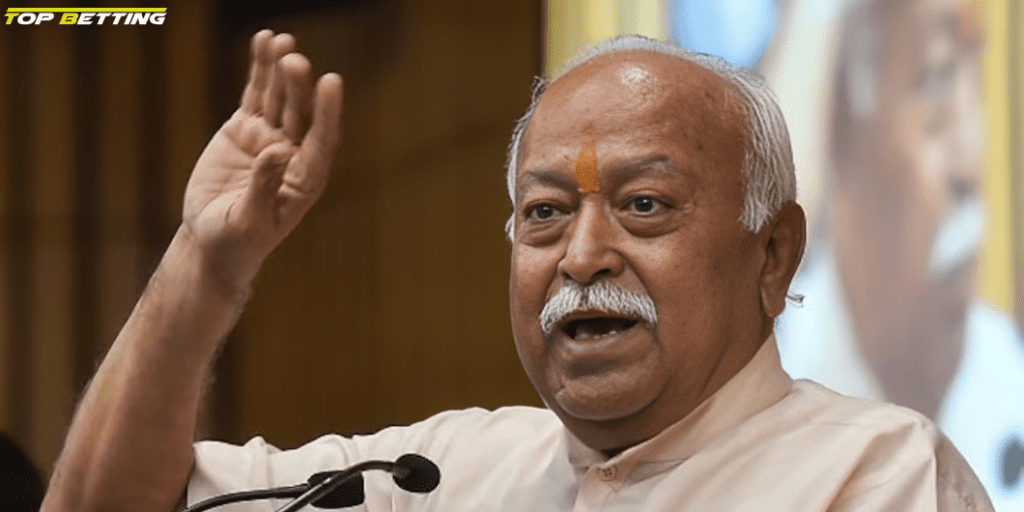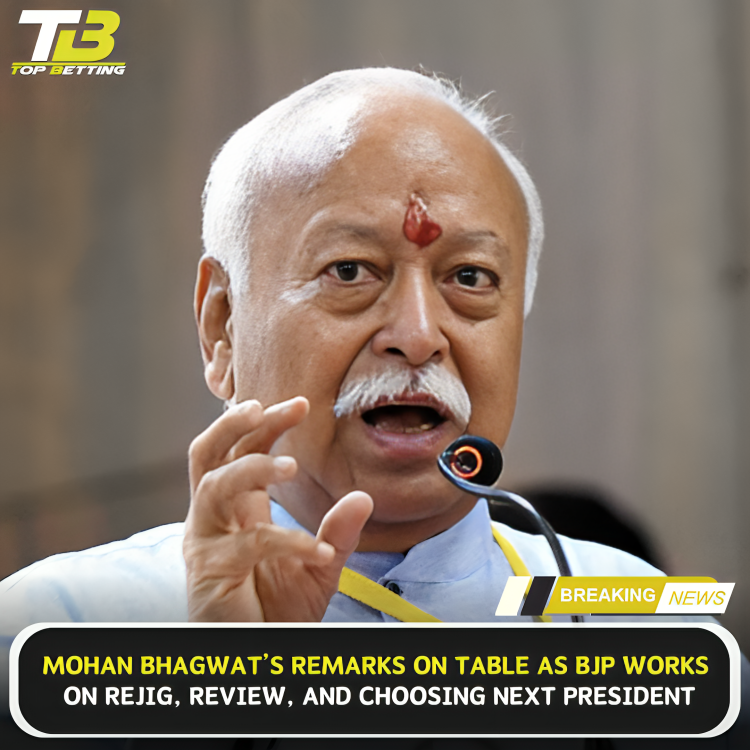
BJP works on rejig review and choosing next
The Bharatiya Janata Party (BJP) has been at the forefront of Indian politics, driving significant changes and shaping the country’s political landscape. As the party undergoes a process of internal reshuffling and review, the stakes are high, given the upcoming state and national elections. The BJP’s ability to adapt to new challenges and maintain its momentum will largely depend on how effectively it navigates this period of transition.
The recent remarks by RSS chief Mohan Bhagwat have injected a new sense of urgency and speculation into the BJP’s strategic decision-making. With the party looking to redefine its leadership structure and set the course for the future, the timing of Bhagwat’s comments could not be more crucial. The BJP’s response to these remarks will not only shape its internal dynamics but also have far-reaching implications for its positioning in the broader political arena.
As the BJP grapples with the task of rejuvenating its organizational framework, the focus has shifted towards identifying the right candidate to lead the party forward. The selection of the next president will be a pivotal moment in the BJP’s journey, determining its direction, priorities, and approach to governance.
Against this backdrop, the BJP’s rejig and review process takes on added significance, drawing attention from all quarters eager to decipher its implications.
Exploring Mohan Bhagwat’s Remarks and Their Impact
Mohan Bhagwat, as the head of the Rashtriya Swayamsevak Sangh (RSS), wields considerable influence not just within the Sangh Parivar but also over its political offshoot, the BJP. His recent statements have set off a chain reaction within the party, sparking debates and discussions about the future course of action. Bhagwat’s remarks are being scrutinized for hidden meanings and signals that could offer clues to the BJP’s next steps.
The nuanced nature of Bhagwat’s communication style has added layers of complexity to the already intricate web of BJP’s internal dynamics. His comments are being parsed for their implications on key issues such as ideology, governance, and party structure.
The interplay between Bhagwat’s vision and the BJP’s operational realities is a topic of intense speculation, with analysts trying to decode the underlying message behind his public pronouncements.
While Bhagwat’s remarks may have been intended for internal consumption within the Sangh Parivar, their public dissemination has opened them up to wider interpretation and scrutiny. The impact of his words goes beyond the immediate context, resonating with BJP supporters, opposition parties, and the general public alike.
BJP’s Process of Choosing the Next President
The selection of the BJP’s next president is a critical decision that will shape the party’s trajectory in the coming years. As the BJP navigates a period of transition and introspection, the choice of a new leader assumes paramount importance in defining its identity and priorities. The process of selecting the next president involves a careful balancing act between various factions, ideologies, and regional considerations.
The BJP’s intricate internal dynamics add a layer of complexity to the president selection process, with different power centers vying for influence and control. The party’s electoral successes and organizational strengths will be key factors in determining the qualities sought in the next president.
The chosen candidate will not only have to uphold the BJP’s core values but also chart a course that resonates with a diverse electorate across the country.
Amidst intense speculation and conjecture, the BJP’s leadership is engaged in a meticulous deliberation to identify a candidate who can unify the party, inspire confidence among voters, and navigate the evolving political landscape.
The next president of the BJP will inherit a legacy of achievements and challenges, requiring a blend of vision, pragmatism, and political acumen to lead the party into the future. The stakes are high, and the BJP’s choice will reverberate across the political spectrum.
Conclusion: The Implications of BJP’s Rejig, Review, and Selection Process for the Party’s Future
In conclusion, the ongoing process of rejig, review, and selection within the BJP holds profound implications for the party’s future trajectory and the broader political landscape in India. Mohan Bhagwat’s remarks have injected a new sense of urgency and anticipation into the party’s decision-making, setting the stage for a period of introspection and recalibration. The choice of the next BJP president, the evolving dynamics within the party, and the intricate interplay between the RSS and the BJP will shape the contours of Indian politics in the coming years.

As the BJP navigates a complex terrain of internal challenges, external pressures, and electoral imperatives, the party’s ability to adapt, innovate, and engage with a diverse electorate will be tested. The selection of the next president will be a defining moment for the BJP, signaling its readiness to embrace change, respond to new realities, and reaffirm its commitment to the principles of nationalism, development, and social cohesion.











